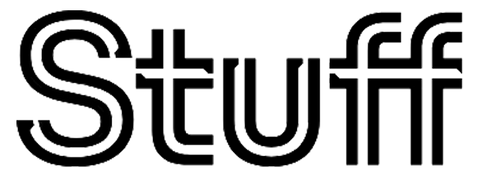
Christchurch woman Natalie Harrison launched a business while struggling with chronic fatigue.
When she launched Kiri10 in June 2020 to produce supplement pills made from keratin extracted from New Zealand coarse wool, Covid-19 economic and social disruption was at its height.
But Harrison was battling her own health troubles. Despite being fired with enthusiasm and the ambition to own her own socially-useful business, she was struggling to get through her days.
“I was getting up in the morning, going to the office, doing a bit of work, hitting a wall, sitting at the desk, not being able to concentrate, and going home and sleeping anywhere from three to five hours,” she said.
It wasn’t until earlier this year that she was diagnosed as having myalgic encephalomyelitis, also called chronic fatigue syndrome, a long-term condition characterised by a range of symptoms, the most common of which is extreme tiredness.
Despite struggling with exhaustion all her adult life, it had been dismissed with the idea that she had a weak immune system following two severe illnesses when she was a teenager.
The chronic fatigue syndrome diagnosis, which she only got when she changed doctor, opened a new chapter in her life, and business.
She joined a myalgic encephalomyelitis Facebook group, opened up about what she was trying to do, and appealed for advice.
“I just said, ‘I need a bit of help. I’ve got my own business. I really want it to succeed, but the brain fog, the fatigue is really getting to the point where I’m struggling to do a couple of hours a day’,” she said.
Harrison got more than advice by joining the online group.
“In a weird way it gave me a bit of peace, a bit of acceptance, that I wasn’t alone,” she said.
She also met people with far worse fatigue than her own, preventing them from undertaking any work at all. “It opened my eyes,” she said.
She made changes to her diet, largely removing dairy and gluten, and stopping drinking alcohol, which have seen her fatigue lessen, as has finding supplements that worked for her.
Serendipitously, she also came across life and business coach Kate Ruby Aroha who provided invaluable advice for people trying to build up a business on limited hours.
Looking at other business owners, including one of her close friends, had led Harrison to think she needed to be working all hours to succeed.
“I sometimes still get into that mindset, thinking that’s what I have to do, putting all those hours in, but that training with Kate, she said the opposite.”
“As a business owner you have to work out how many hours you can put into your business, whether you are working another job while you are building a business, or working full time at it,” she said.
“That really helped me in regards to my ME. I can’t do 10to 14-hour days, but I can do five hours a day, so let’s make those hours count,” she said.
“It’s really changed my mindset,” she said.
Other people’s mindsets have also changed over the past two years, as Covid has reshaped the way people work, as well as normalising the idea of fatigue following illness.
“The Covid pandemic is a blessing in disguise for people out there like me that are really struggling,” she says.
Long Covid has normalised the idea that people can suffer from long periods of fatigue following illness, and made it easier to talk about.
Kiri10, which Harrison co-owns with her partner and a friend, sells its keratin supplements through its website, and through nail and hair salons. Hair and nails are composed of keratin, and the supplements are used by people in a bid to support the health of their hair and nails.
Harrison said keratin use in products like Kiri10’s supplements, shampoos and wound care bandages overseas was helping keep New Zealand coarse wool production economic.
Each year around 80 tonnes of wool from farms in Otago and Southland were processed to extract keratin, and the export of keratin is now a multi-million dollar industry for New Zealand.

















0 comments